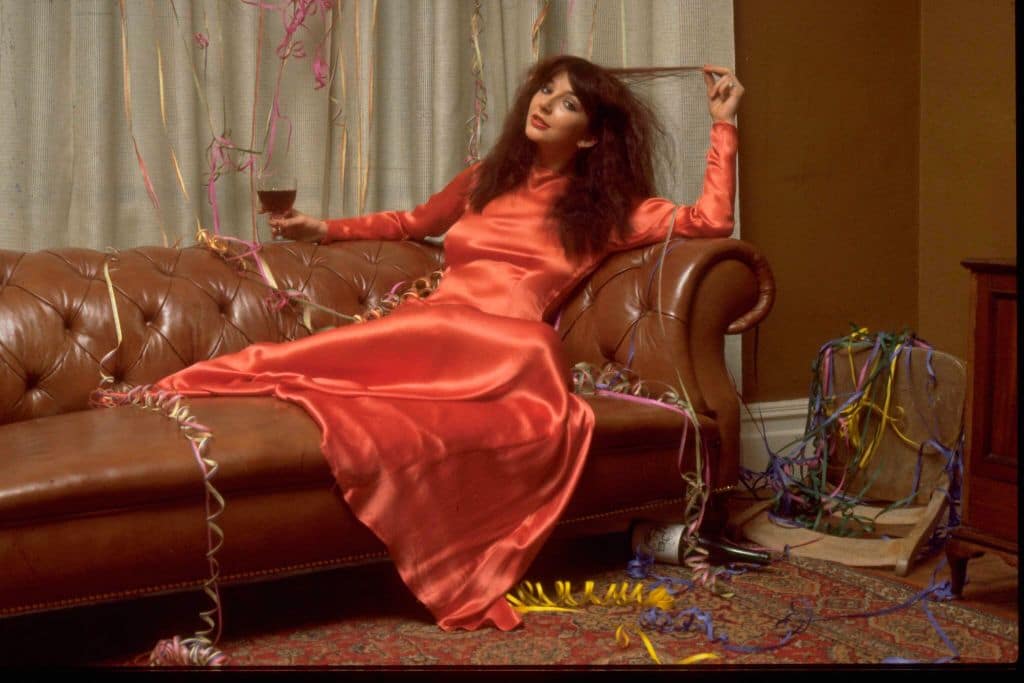The enduring, mystical queer appeal of Kate Bush: From pioneering ally to eternal gay icon

Kate Bush. (YouTube)
If you’ve been a queer teenager at any point in the past five decades, there’s a decent chance you’ll have experienced a phase of consciously getting into Kate Bush’s music.
The beguiling English singer has captivated and perplexed audiences since the 1970s with her theatrical performance style, spooky lyrics and one-of-a-kind voice, developing a cult following.
A pinnacle star of 1980s pop, Kate Bush took a lengthy hiatus from 1993 until 2005 and has released just three albums this century, one of which contained no new songs. In 2014, she played her first concerts in 35 years.
Though her work has become sporadic, successive generations have fallen in love with Kate Bush thanks to the enduring appeal of her songs. Right now, her 1985 hit “Running Up That Hill (A Deal With God)” is captivating new fans after featuring prominently in the record-breaking fourth season of Netflix’s Stranger Things.
The track is expected to return to the UK chart on Friday (3 June). It’s already reached the top of Spotify’s UK daily songs chart, displacing reigning pop prince Harry Styles, and became Spotify’s fourth-most streamed track globally.
Of course, it’s not just the television gods Kate Bush can thank for sustaining her over the years. As with many female pop stars through the ages, a driving force of her enduring popularity has been her deep-rooted connection with the LGBTQ+ community.
“Becoming acquainted with all of Kate’s work was such a unique experience that I’ve never had since. It was like meeting a great friend that you know will be in your life forever,” Olly Waldron, a 23-year-old gay male DJ and Kate Bush superfan, tells PinkNews. To Waldron, Bush’s music offers an escapism from the mundanity of day-to-day life which is very appealing.
“Of course, her earlier performances and videography were exceptionally camp and theatrical. However, the world she built, not only with her storytelling lyricism but also her production, is the most perfect escapism,” he explains. “Kate transcended all norms and genres that were present in the music industry at that time which I think a lot of queer people can relate to.”

Kate Bush. (TV Times via Getty)
For Peter, a 52-year-old graphic designer and self-described ‘queer bloke’, it is Kate Bush’s status as an “outsider” that tethers her permanently to her queer fanbase.
“She holds a special place in the hearts of queer people because she stands proudly on the outside of the ‘straight’ world,” said Peter. “She comes at everything from an obtuse angle.
“She soothes me, she frightens me, she keeps me sane and she lets me be insane. She tells me that as long as she is around, I’m not the only freak.”
Kate Bush wrote a gay love song in the 70s
Although Bush’s pop hits like “Wuthering Heights”, “Babooshka”, and “Running Up That Hill” have delighted dancefloors in gay bars around the world for decades, most super fans will agree that the gayest moment in the singer’s career is undoubtedly the song “Kashka From Baghdad” from her 1978 sophomore album Lionheart.
This typically peculiar song tells the story of a woman watching a gay couple living in the house opposite her who only come out at night as they fear persecution.
“Kashka from Baghdad lives in sin, they say with another man but no one knows who,” Bush sings over a distinct instrumental of piano, strumento da porco and pan pipes. Later in the track she sings of how she “longs to be with them” because “they know the way to be happy.”
“It blows my mind that she wrote and released such a pro-LGBTQ+ song as a teenager in the 1970s when it was then such a taboo subject,” says Olly.
“I was very young when that first came out and I didn’t know what to make of it,” Peter adds. “I couldn’t believe she was singing about homosexuality, it felt almost too much. I was scared I’d heard it wrong, and she was mocking but she wasn’t. I realise what a brave song that was now.”
For the many young Stranger Things fans discovering the enchanting world of Kate Bush for the first time this week, an abundance of spellbinding music and mesmerising performances await.
Bush’s vast catalogue of sounds and images can feel almost insurmountable at first, but it is a mountain so worth climbing for any queer pop music aficionado.

